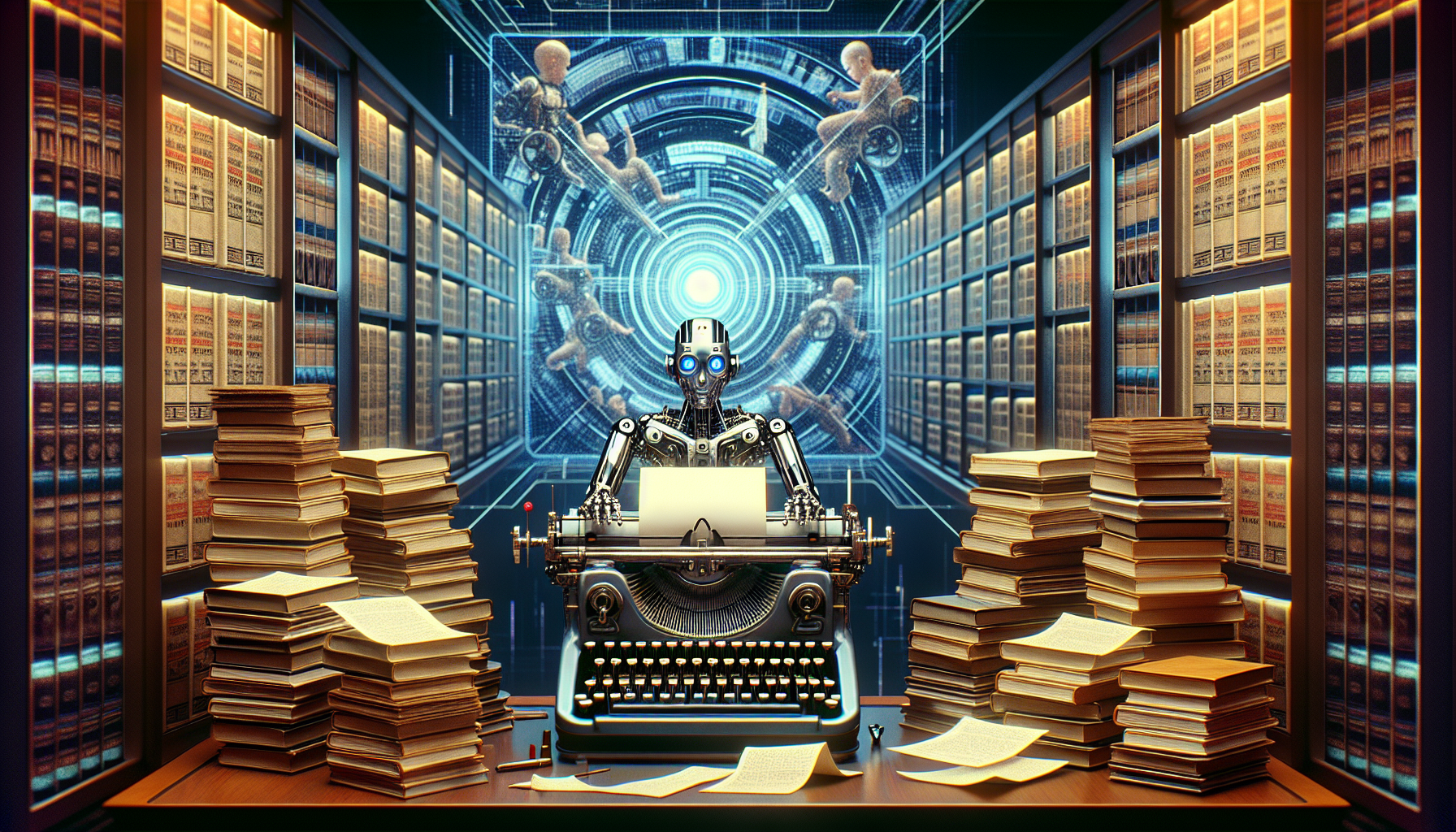
Artificial Intelligence in the Writer’s Room: Innovation or Plagiarism?
An Ode to Originality: The Human Touch
Picture this: a dimly lit room, coffee-stained scripts scattered like confetti, and a writer furiously typing away, channeling the muses of creativity. Enter AI, stage left—turning this scene on its head with algorithms and machine learning models that produce prose faster than you can say Oscar nomination. But as we roll the opening credits on this narrative, the burning question lingers: Is AI screenwriting an innovative leap forward, or a blatant trampling on the sacred turf of human creativity?
Lights, Camera, Algorithm!
Artificial Intelligence has come a long way from the days of playing chess and predicting the weather. Meet GPT-3, an AI writing model that can whip up a screenplay outline while you’re still deciding between kettle corn and classic butter. Programs like these can analyze patterns in successful screenplays, crunch data from vast libraries of literature, and churn out stories that resonate eerily well with human audiences. It’s like having your very own Shakespearean ghostwriter, minus the quill and the existential crises.
The Plot Thickens: Creativity vs. Computation
But let’s hit the pause button and ponder: Can an algorithm truly capture the nuances of human emotion, or is it merely regurgitating repurposed tropes? Proponents argue that AI can democratize the screenwriting process, providing valuable support to budding writers and seasoned pros alike. The problem arises when AI starts not just assisting, but headlining the creative process. After all, a storyline with all the right plot points but no soul might as well be a cinematic instruction manual.
Cut to: The Legal Tangled Web
If the romantic notion of the solitary writer isn’t enough to sway your opinion, consider the legal quagmire. Copyright laws are as tangled as a pair of earbuds in a back pocket. Who owns an AI-generated screenplay? The creator of the algorithm? The user? The AI itself in some bizarre, dystopian twist? If you think writer’s block is bad, wait till you see litigations over intangible intellectual property rights.
Flashback: AI’s Greatest Hits (and Misses)
Remember the AI-generated short film “Sunspring”? If not, it’s probably because it was more of a fever dream than a coherent narrative. Written by an AI named Benjamin, the film was a veritable smorgasbord of random phrases and out-of-context sentences. Hilarious, yes. Oscar-worthy? Not quite. It showcased the current limitations of AI in understanding context and continuity, offering a reassuring nod to the indispensability of human oversight.
A Climax or a Cliffhanger?
The use of AI in screenwriting remains a polarizing topic that walks a fine line between genius and opportunistic laziness. Optimists envision a collaborative future where AI serves as an indispensable tool, enriching human-led creativity rather than usurping it. Pessimists fear a bland, homogeneous dystopia—a world where every screenplay reads like it was penned by a caffeinated robot with writer’s block.
Roll Credits, But Keep the Debate Rolling
While the jury is still out on whether AI screenwriting is an unprecedented innovation or a slippery slope into creative monotony, one thing is clear: the dialogue surrounding it is as captivating as anything Hollywood has ever produced. Popcorn in hand, we watch this saga unfold, as nuance and machine learning continue to wrestle for the spotlight.






